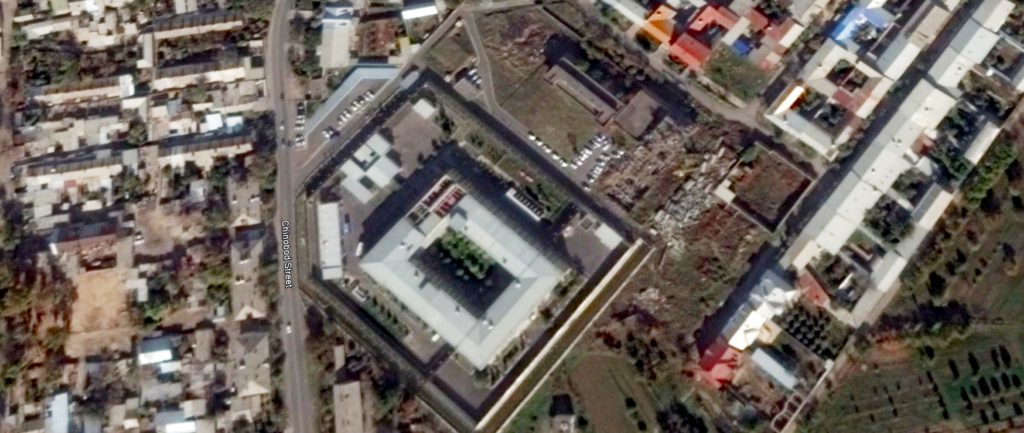“The authorities will say that I revealed the secrets of Uzbekistan. That’s why they cannot find out about me at all. If they find out, they will put me in prison straight away.”
With these words, Zuhra exposes the fear that comes with talking about her family’s persecution by the Uzbekistani security forces. In this authoritarian central Asian country, the government’s grip on society is clear: the media are controlled and there are no registered opposition parties.
Islam Karimov has been the president for more than two decades. State surveillance is everywhere – on the street, in internet cafes – and dissent is quickly and often severely repressed.
Information coming in from the west is closely monitored and anyone who wants to travel abroad needs a special exit visa. Those who fall foul of the authorities risk the severest of consequences.
Prison: ‘Where hell reigns’
“Hell reigns in Uzbekistani prisons” says Sergey Ignatyev, a painter now living in exile. “These are places where people are tortured.” Testimony abounds: electro-shock, beatings, asphyxiations, and threats of rape and death.
Vahit Güneş, a Turkish businessman who spent 10 months in a National Security Service (SNB) detention centre in Tashkent in 2011 and was tortured, explains further. “They handcuff people to radiators. I saw how they broke prisoners’ bones with baseball bats. At night I could hear people scream as if they were being attacked by wolves.”
What are you going to do other than sign the papers? Do you have any alternative? You are captive there… You don't have any rights. Where can you file a complaint? What would even happen if you screamed? Who would hear you?
Vahit Güneş, a former detainee, referring to the confessions many are tortured to sign

Being heard, at all cost
But the truth has been heard. Letters written by prisoners have been smuggled out of Uzbekistan, and their stories have been shared. One letter written by former prisoner Mamadali Makhmudov in 2004 described how men were forced to crawl naked across the prison floor and beaten with truncheons. They were kicked and beaten for failing to sing the national anthem, and left naked, without water or a toilet for several days.
“It was hard to know who was alive, who was dead,” he wrote. “Before my own eyes young people were beaten and killed.”
Sergey has read dozens of letters from prisoners and used them to create an exhibition called Letters from Prisons. He concludes firmly: “Torture and isolation can change a man. They kill the human inside; the person gets used to torture and loses his ability to defend himself. But until the very last minute they hope that they will be freed.
Torture must be stopped, and it can be only done with the support of people of good will.
Sergey Ignatyev, an Uzbekistani painter
In Uzbekistan, people are regularly tortured and forced to sign false confessions. Men and women are pressured in the most brutal ways imaginable to sign their names.
The President of Uzbekistan can change this. He can sign a decree outlawing the use of torture to obtain confessions, and so put an end to the beatings, electroshock and burns.
And your signatures are powerful too. Your names, in their thousands, can pressure him to stop people being forced to sign a confession.


